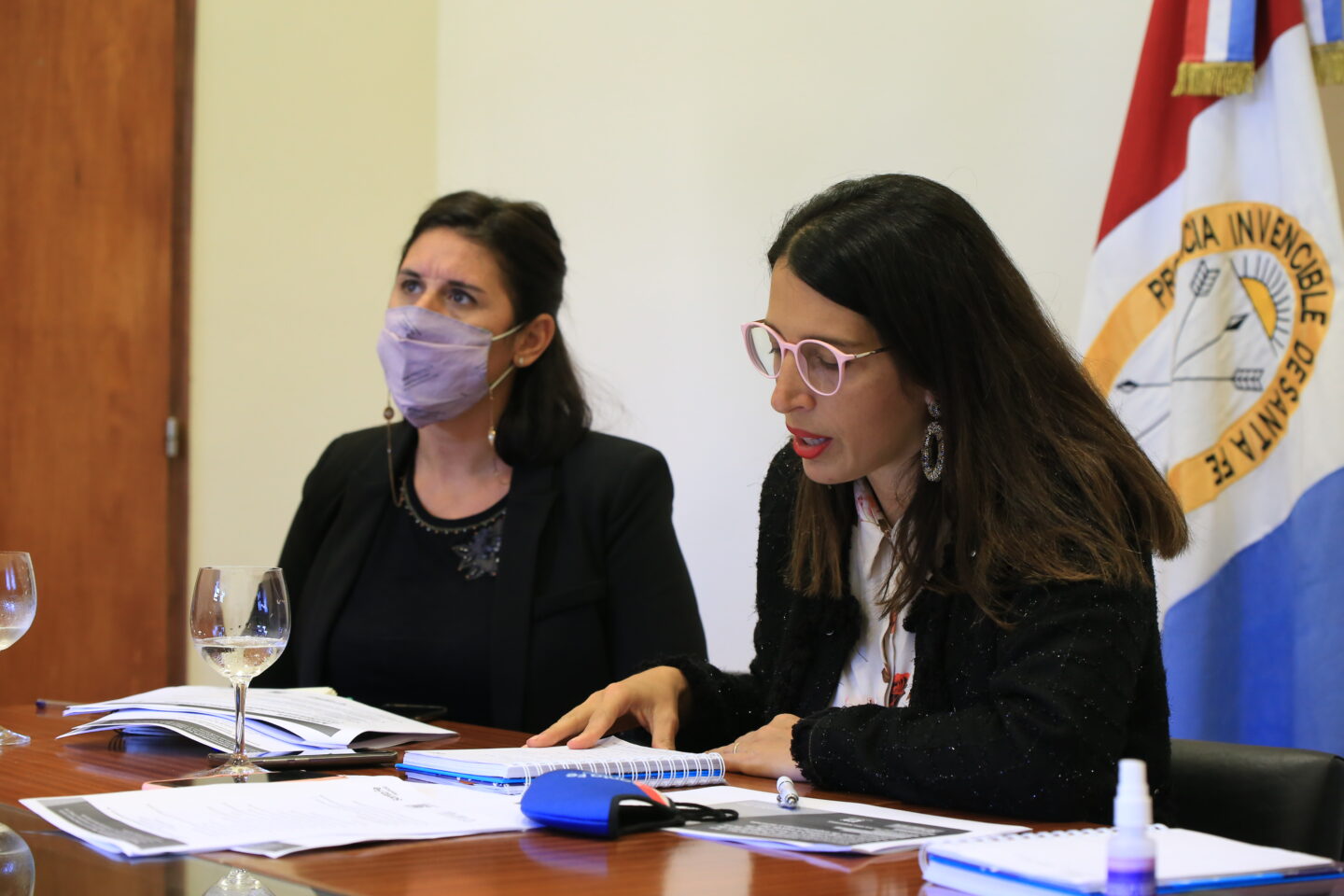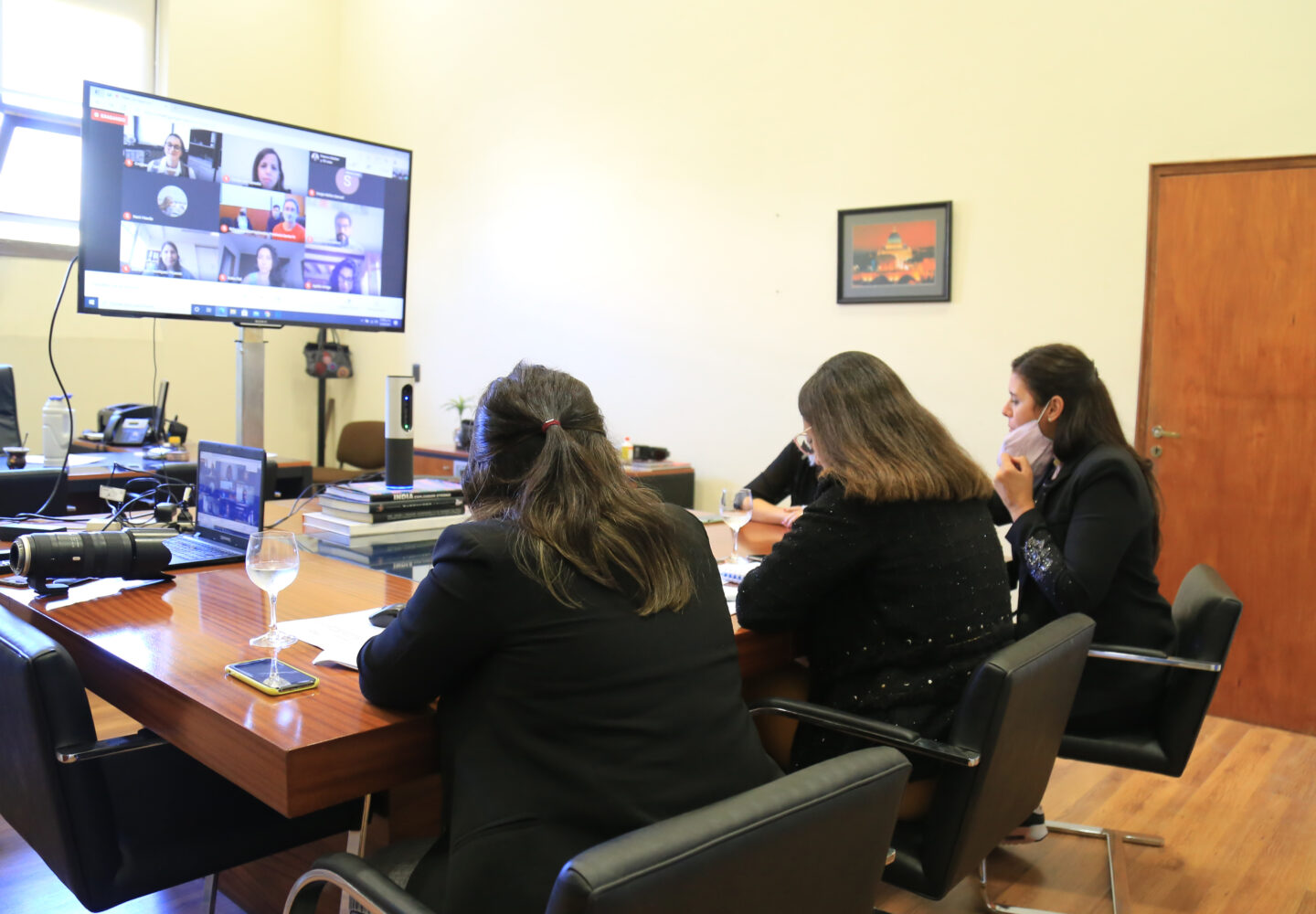Decentralized South-South Cooperation as an opportunity to address the challenges of 2030 Agenda
Increasing the exchange and collaboration between subnational and local governments is one of Ibero-America’s commitments.

One of the greatest challenges to make progress on the transformations the 2030 Agenda requires is governance, both the global governance of common and transnational problems, as well as its territorial correlation (Martínez, P. 2022. p. 24). Decentralized Cooperation has a high potential for this purpose, as it includes different stakeholders that are key for territorial development.
As part of its contribution to strengthen regional capacities for a greater and better management at the decentralized level, the Ibero-American Program for the Strengthening of South-South Cooperation (PIFCSS by its Spanish acronym) has been developing actions aimed at:
Generating capacities in institutions responsible for international cooperation in order to promote – on a voluntary and non-binding basis – the coordination and management of Decentralized South-South Cooperation (CSSD by its Spanish acronym), improving local governments’ abilities in this area through their participation, in a coherent and programmatic manner, in the Program’s activities (2020-2023 Medium-Term Strategy, 2022, p.15).
The working document Main axes for a strategy to strengthen Decentralized South-South Cooperation, prepared in 2019, and two virtual courses on CSSD, held in 2021 and 2023, for professionals in charge of the management of international territorial cooperation in their respective countries, should be highlighted among the most recent activities (PIFCSS, 2022, p.12).
This commitment to CSSD has mainstreamed other traditional instruments such as the Structured Mechanism for the Exchange of Experiences of South-South Cooperation (MECSS by its Spanish acronym). In this sense, the project between Argentina and Chile to improve regional governments’ capacities to respond to citizens’ needs is precisely an outstanding example (Province of Santa Fe, 2021).

Through this initiative, the Secretariat for International Cooperation and Regional Integration (SCIeIR by its Spanish acronym) of the Province of Santa Fe (Argentina) aimed to contribute to strengthen the Regional Unit of International Affairs of the Regional Government of La Araucanía (Chile), through capacity building and the exchange of experiences and best practices on internationalization management.
This project was implemented between April and November 2021. Although some face-to-face activities could not be carried out due to health restrictions as a result of COVID-19, online meetings were held to increase and diversify the participation of a greater number of local stakeholders and of experts in various topics and sectors (Province of Santa Fe, 2022). The previous work of both regions’ teams in FLACSO’s South-South Cooperation Diploma, in 2019, should be highlighted as a precedent for this initiative.
One of the main outcomes of this exchange was the document that systematizes lessons learnt in terms of internationalization processes, the approach to international cooperation with a territorial development approach, the key stakeholders that were part of this process and Decentralized Cooperation’s challenges and potential (Province of Santa Fe, 2022).
Finally, after two days of virtual meetings between the Secretariat for Cooperation and Regional Integration of the Province of Santa Fe and the Regional Unit of International Affairs of La Araucanía, experts prepared a roadmap with 9 recommendations for the internationalization of local governments which, in turn, can be referred as a good practice for other cases.
September 2023
***
Source: SEGIB based on Agencies and Directorates-General for Cooperation, Martínez, P. (2022), project’s Systematization Report (2021), PIFCSS (2022) (2020) (2019) and Province of Santa Fe (2022) (2021).

